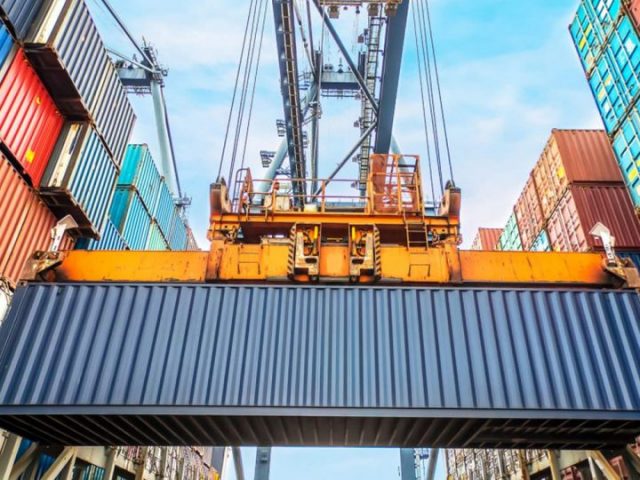
Hassan Bello, the Executive Secretary of Nigerian Shippers’ Council (NSC), has urged stakeholders to work together for effective operations of the Kaduna Inland Dry Port (KIDP).
Bello made the plea at a stakeholders meeting in Lagos on the the benefits of Inland Dry Ports in Lagos on Thursday.
He said that such synergy would complement the Federal Government’s efforts on the Ease of Doing Business.
It was gathered that Kaduna Inland Dry Port was designated as a port of origin and final destination by the Federal Government of Nigeria via the Kaduna Inland Dry Port Declaration Order of 2015.
The dry port has facilities for container stacking, trucks park, drivers lounge, cargo handling equipment, warehouses, rail access, refrigerated containers, power source, offices, weigh bridge, warehouse security inspectors and Customs unit, among others.
According to Bello, “if we do not work together, there is no how we can achieve the benefits of the IDP”.
“Over 10 years ago, we have been on the issue of the dry ports, including railways. All efforts actually came to reality with the support of President Muhammadu Buhari, who told the private sector to synergise to achieve effective dry port in the country.
“We have been working with operators and the idea is to establish modern inland dry ports and the ease of doing business must be instituted in the ports,’’ he said.
Tope Borishade, the Chairman Inland Container Limited, pleaded for stakeholders’ co-operation for him to achieve his mandate as a dry port operator.
Borishade said that the KIDP would not compete with sea ports, but to collaborate to improve the ease of doing business.
He said that Nigeria was already loosing cargo to neighbouring countries and promised that KIDP would improve government’s revenue by attracting more cargo into the country.
Rotimi Rahimi, the Port Manager, Inland Container Nig. Limted, urged the Shippers’ Council to advise the Nigeria Customs Service (NCS) to deploy officers to the dry ports.
He said that Customs should secure the recognition of dry ports by the Central Bank of Nigeria (CBN), through inclusion in the list of ports of origin and destination on the Form ‘M’ e-platform.
“The Nigerian Ports Authority (NPA) should develop invoice rating models for seaports and terminals, as well as shipping companies that would encourage use of dry ports.
“NPA should also engage seaport concessionaires to provide separate access for both inward and outward movement of dry port cargo. Shipping companies should operate through Bill of Lading from ports of Origin to ports of Destination to process shipping documents for import and export release at the dry ports.
“Shipping companies must have their presence in Kaduna to provide shipping services to shippers, while the terminal operators should allow shipping companies to move cargo from the ports without hindrance.
“The concessionaires should allow 30-day rent passage for dry port cargo and should also grant priority terminal access for trucks hauling dry port cargo,’’ Rahimi said.
Musa Manniru of Enforcement Unit, Customs Zonal Headquarters, Lagos, said that the Customs management was working to ensure functional scanners at the ports for trade facilitation.
Manniru said that the Customs would also assist government in collecting revenue by deploying efficient officers to the dry ports.
Emmanuel Ebubeogu, the General Manager, Special Duties in NPA, said a dry port should be a transit area and should also include storage area.
Ebubeogu said that the railway system should be functioning effectively, because the system must be centred on railways.
He said that owners of goods would like to minimise profit and they must consider the importance of transportation as a derived demand in terms of time, safety and cost of landing.
Freeborn Okhiria, the Managing Director, Nigeria Railway Corporation (NRC), said that all efforts must be geared toward improving cargo delivery.











